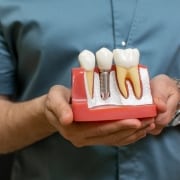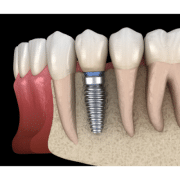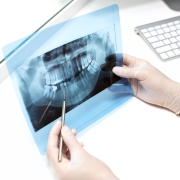Osseointegration and Your New Dental Implants
There is a step-by-step process involved when getting dental implants. Your dentist in University Heights, OH, will go over each step of the process in detail with you. However, the most important part of getting dental implants is the osseointegration process. That’s what will determine the success of your implants. People who don’t have dental implants have likely never heard of or know what osseointegration is.
So, let’s talk about that for a moment.
What Is Osseointegration?
Osseointegration is a process where bone forms around your newly placed dental implants in University Heights, OH. It’s a crucial part of the dental implant process. The bone that forms around your dental implants is what anchors them in place.
How Does Osseointegration Work?
Osseointegration uses your body’s natural healing response to enable bone cells to grow around your new implants. This process typically takes 3-6 months or so. Once osseointegration is complete, your dentist will add an abutment to the top of your implant. Then, an artificial tooth (crown) will be placed. That’s it! You’re done!
The Importance of Bone Health in Dental Implants
Bone health is extremely important. If you don’t have enough bone density, you might not be a good candidate for implants. Your dentist will let you know. There might also be other options (like bone grafts) that might still make it possible.
Another aspect of getting dental implants (versus not replacing a missing tooth or teeth) is to stimulate the bone growth in that area. If you don’t replace a missing tooth, your jawbone will start to deteriorate. That will cause your other teeth to shift. It could also affect your facial structure (depending on how many missing teeth you have). You don’t want to end up with a sunken face!
Looking for a Reputable Dentist in University Heights, OH?
If you want dental implants, you will need a reputable dentist to perform the procedure for you. Please Contact Innovative Smiles today to schedule a consultation and exam. We love creating beautiful smiles!











